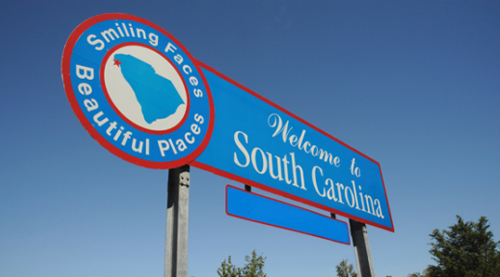South Carolina is leading the nation in economic freedom and in resistance to federal government overreach, at least according to two new comprehensive rankings.
A brand new report from the State Policy Network’s Center for Practical Federalism ranked South Carolina #4 in the nation on its Federalism Scorecard.
This means that South Carolina outshines most other states in our commitment to resisting federal government overreach that threatens constitutional boundaries and imperils citizen self-governance. The scorecard is based on factors related to the balance of power between a citizenry’s elected representatives and unelected agency officials. Our outstanding score shows that South Carolina places authority over internal state agency operations, as well as the state’s relationship with federal agencies, in the hands of elected officials rather than unelected administrators.
In particular, the report ranked South Carolina as stronger than average in having legislative regulatory review and oversight committees. South Carolina requires that regulations adopted by state agencies go through approval by the state legislature, and we have a strong oversight committee process. (We at Palmetto Promise have been saying this for years). Additionally, the report found South Carolina ranked highly for balanced emergency powers. This score is based on a report from the Maine Policy Institute, which compared emergency power rules in all 50 states and found South Carolina to be ranked #1 in the country for our balanced emergency powers, because the governor must earn legislative approval for an emergency declaration to continue past the first 15 days.
The Federalism Scorecard ranked South Carolina as potentially needing better cost-benefit analysis of regulations and resources for legislators to conduct research themselves, rather than relying on agency officials and lobbyists.
Finally, the Federalism Scorecard listed a few areas where South Carolina is vulnerable to agency influence and could stand to improve:
- Judicial non-deference: In 2024, the US Supreme Court restrained, in its Loper Bright Enterprises v. Raimondo decision, the previously wide latitude exercised by federal agencies in their interpretation of federal laws. Many states similarly restrict the ability of their executive branch agencies to decide for themselves what state laws mean. South Carolina does not yet have a statute for this. Legislation, anyone?
- Agency lobbying: At present, only two states curtail the ability of state agencies to lobby their legislature, and no state restricts the ability of state agencies to lobby federal agencies. While it’s essential to maintain communication between legislators and officials tasked with implementing the laws, it’s also important to restrain agency officials from pursuing their own agendas. Constraints on the ability of state agencies to lobby their own legislature are necessary in defense of federalism because federal agencies can quietly influence state agency officials through a variety of means, in effect making them their proxies in statehouses.
- Lack of independent regulatory review: While legislative review of regulations is a valuable and proper check on state agencies, this balance of power can be assisted by independent bodies ensuring that agencies follow state administrative procedures and otherwise comply with state laws. In contrast to legislatures, these boards often have a greater ability to alter proposed regulations so that they comply with the law versus a more blunt-force (and therefore less likely to be deployed) effect of the legislative veto. Not sure we agree. A better fix in our view would be to encourage legislative oversight. They are elected after all.
- Injunctive relief for citizens: When state agencies initiate an action that a citizen believes is illegal or unconstitutional, it can be difficult to get a hearing in court. Tennessee is the only state that guarantees every citizen affected by an agency’s action a relatively simple opportunity to seek an injunction until the legality of that action is determined. Bills have been introduced here, but have failed to pass.
To learn more and see how other states rank, you can find SPN’s full report here.
Their recognition of South Carolina’s commitment to federalism follows a December report from the Fraser Institute on the Economic Freedom of North America. This study ranked South Carolina as #3 in North America for economic freedom, even stacked up against not just the other 49 US states but also Canadian provinces and Mexican states (it’s a unique approach, to be sure!). The Economic Freedom report measures the degree to which governments in North America permit their citizens to make their own economic choices.
When people have more economic freedom, they are allowed to make more of their own economic choices. On one hand, governments can prevent people from making their own economic choices through regulations, taxes, barriers to trade, and manipulation of the value of money. On the other hand, governments can safeguard individual economic choice by affirmatively protecting persons and their property from fraud or force. It’s clear that South Carolina excels at the latter, and our level of freedom stands out on an international level.
To dive deeper into the Economic Freedom of North America report, you can download the full paper here.
South Carolina citizens and legislators should be proud of our state and how we excel nationally and internationally in protecting the state from agency overreach and defending economic freedom, at least in terms of the structures we have in place.
The challenge is to be willing to use these structures aggressively to defend freedom and free enterprise.






